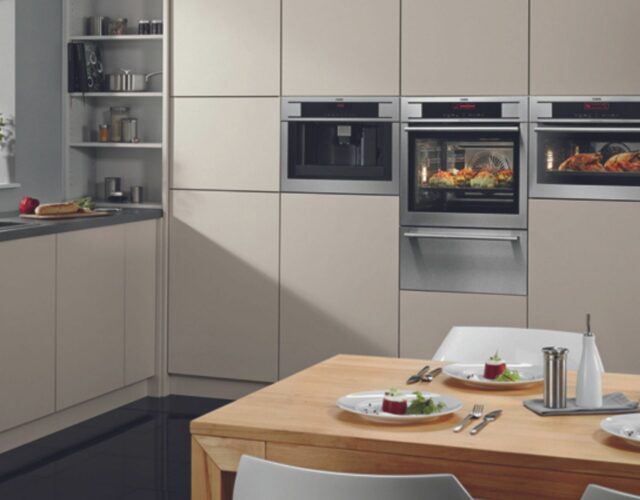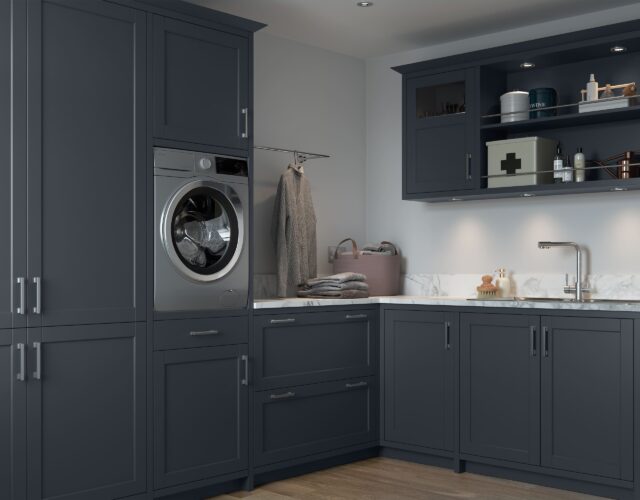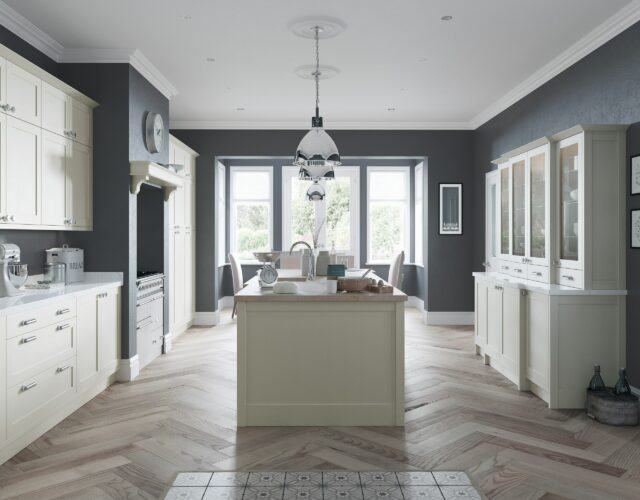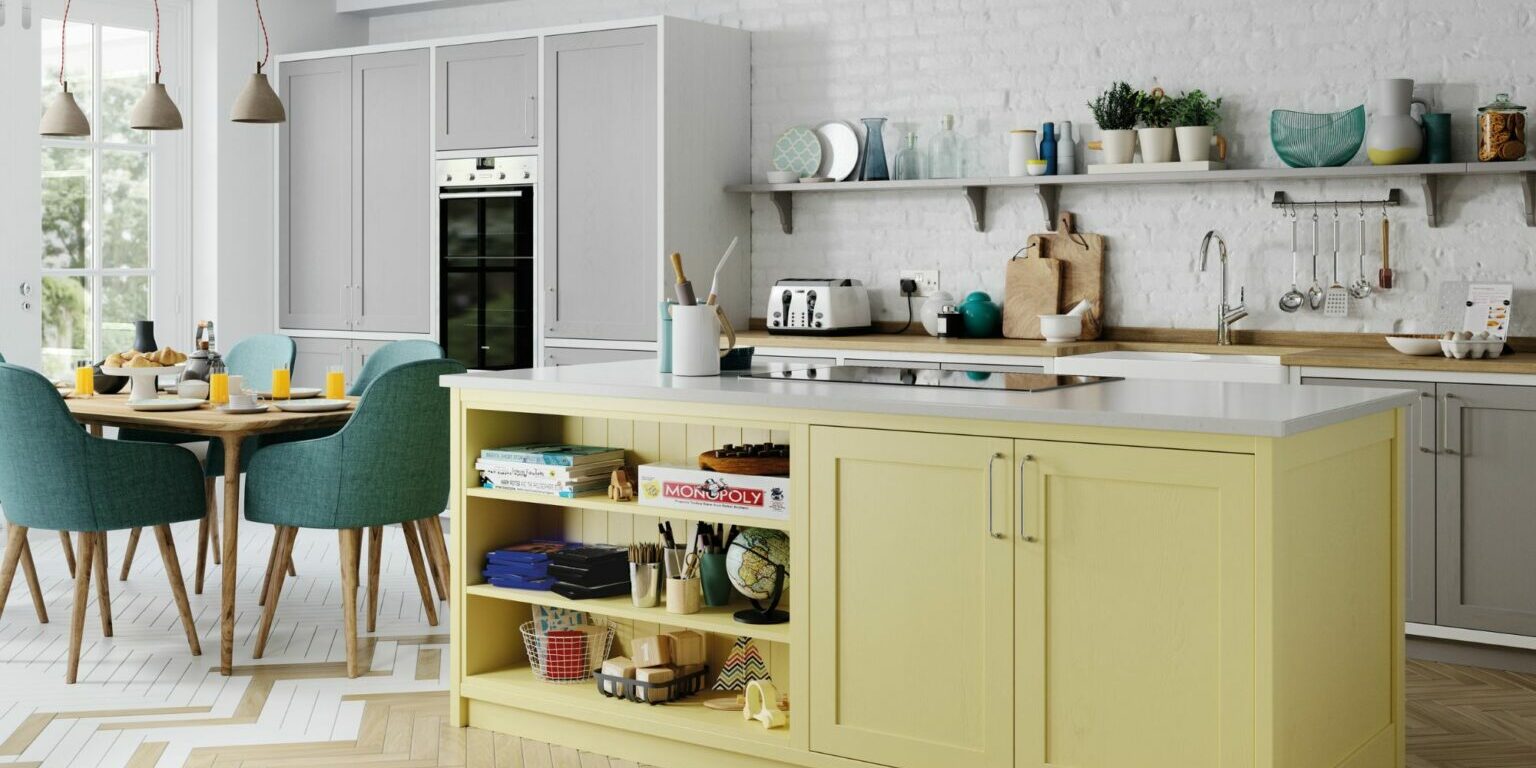

By Lara
The Pros & Cons Of A Kitchen Island
Having recently attended a fabulous Grayson Perry show where the kitchen island was deemed the ultimate pillar of modern-day success, it’s safe to say the kitchen island’s reputation precedes it. Popularised in the 1980s, the island has continued to grow in recognition, making it one of the most desirable and sought-after features to grace many a homeowner’s wish list. Whether you’re in the club with the latter or you’re simply intrigued to learn what all the fuss is about, our expert designers have put together a comprehensive guide outlining all the fantastic benefits the kitchen island has to offer. However, to ensure your judgement isn’t clouded by fashion and to help you make the best decision for your home, we will also be exploring some of the disadvantages you may want to consider.
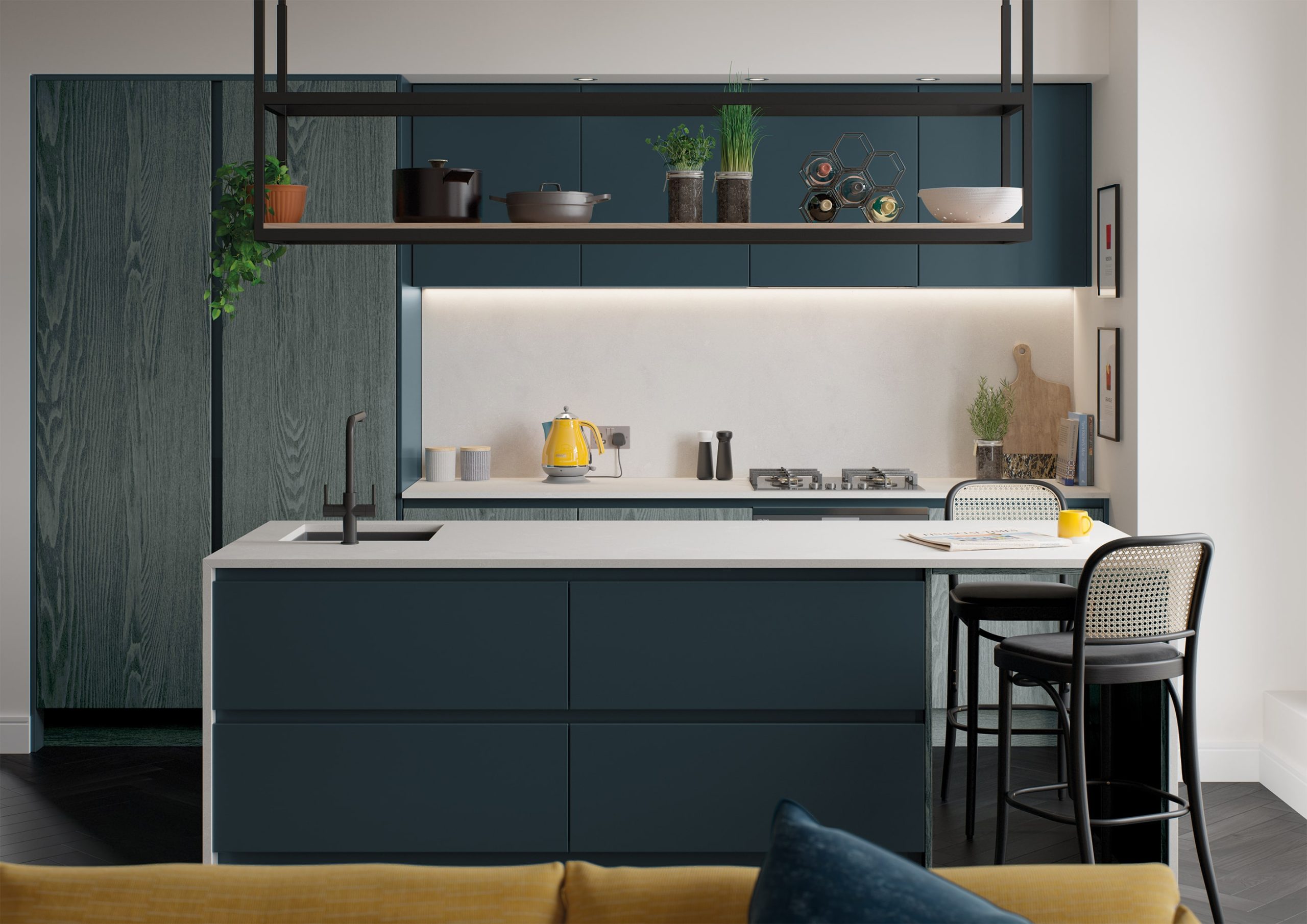
The Pros
Extra Countertop Space
The main benefit of kitchen islands is the extra worktop space they provide. The additional counter space is ideal for preparing and serving meals; however, it can also offer the perfect location to position appliances such as a hob or sink. Working at a kitchen island and facing out into the room rather than enjoying a view of your wall is also a more pleasant way to cook and use your space.
In a more spacious kitchen, an island can improve the layout by bringing appliances and work surfaces within closer reach, preventing you from having to walk all the way across the kitchen to access your sink, fridge or cooking area. Having more than one surface to prepare food on is also great for families who enjoy cooking together.
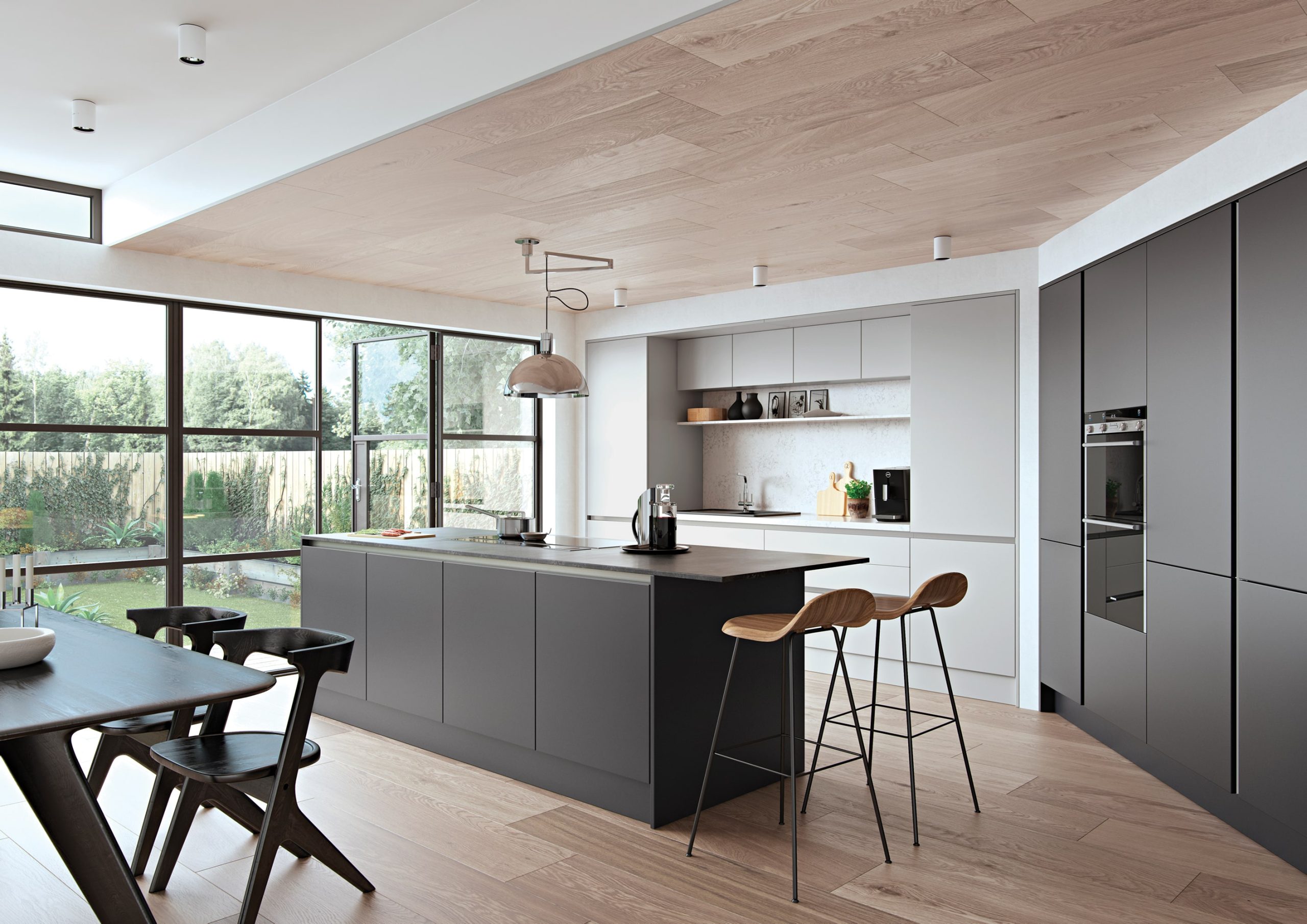
Added Storage Space
Kitchen islands can provide handy additional storage space. With improved accessibility and impressive capacity, extra wide and deep drawers make an excellent practical choice of island storage. By gaining highly functional storage below your island, you may be able to reduce the amount of bulky and inefficient overhead cabinets you have, freeing up wall space and creating a much more open and airy feel.
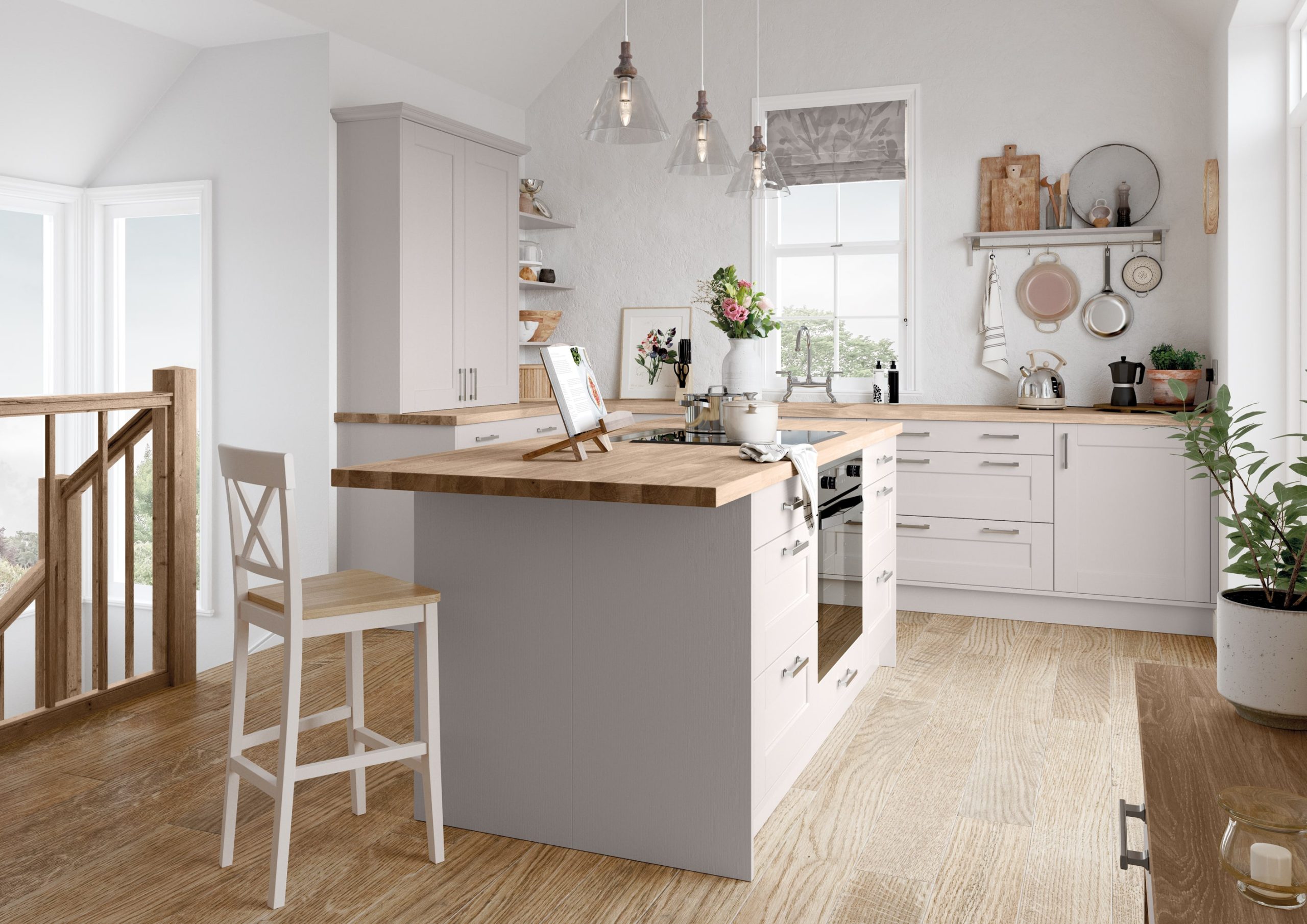
Creates A More Sociable Kitchen
If you’ve ever been invited into someone’s home only to find yourself awkwardly leaning on the kitchen counters and floating around the room, you’ll immediately appreciate the social benefits of a kitchen island. The island acts as a wonderful hub around which guests can gather without feeling awkward or in the way. As well as putting your visitors at ease, the physical boundary established by the island prevents your workflow from being interrupted when hosting and preparing food.
Whether you need to keep an eye on the kids while they do their homework or you’re keen to wow your guests with your culinary skills, adding seating to your island can further enhance its uses. If you’re looking to create the ultimate entertaining setup, you might also consider adding a hob and wine cooler to your island so you can chat while you cook, all while keeping your guests topped up with perfectly chilled drinks.
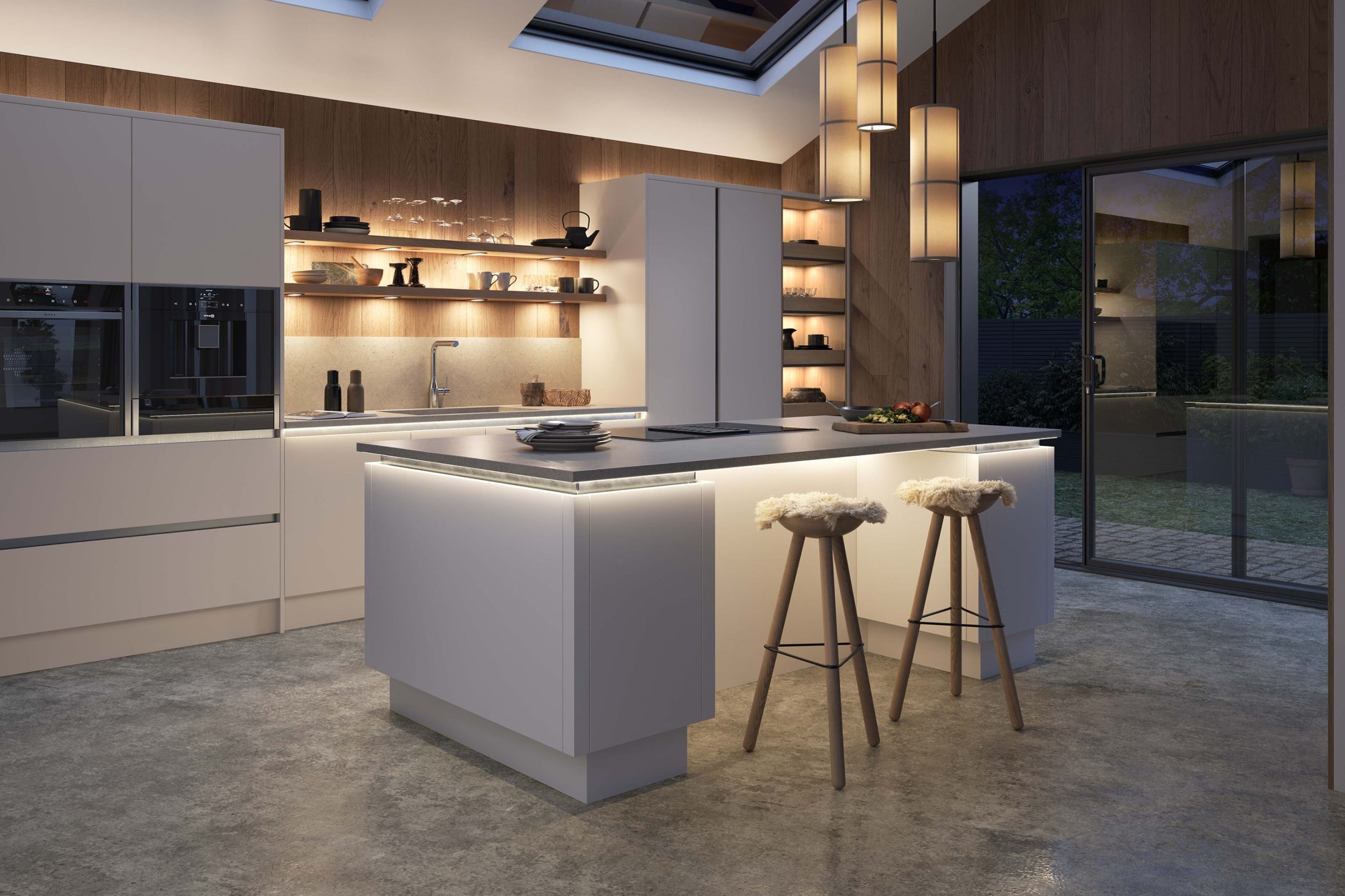
Enhance The Style Of Your Design
Kitchen islands undoubtedly boast plenty of practical benefits. However, there’s no getting away from the fact that more than anything else, many of us simply adore the impressive looks and dramatic presence an island can bring to a room. With the option to add character to your stylish kitchen feature with a bold accent colour, a luxurious contrasting worksurface or a charming alcove display, a well-proportioned island can create a striking and sophisticated visual focal point.
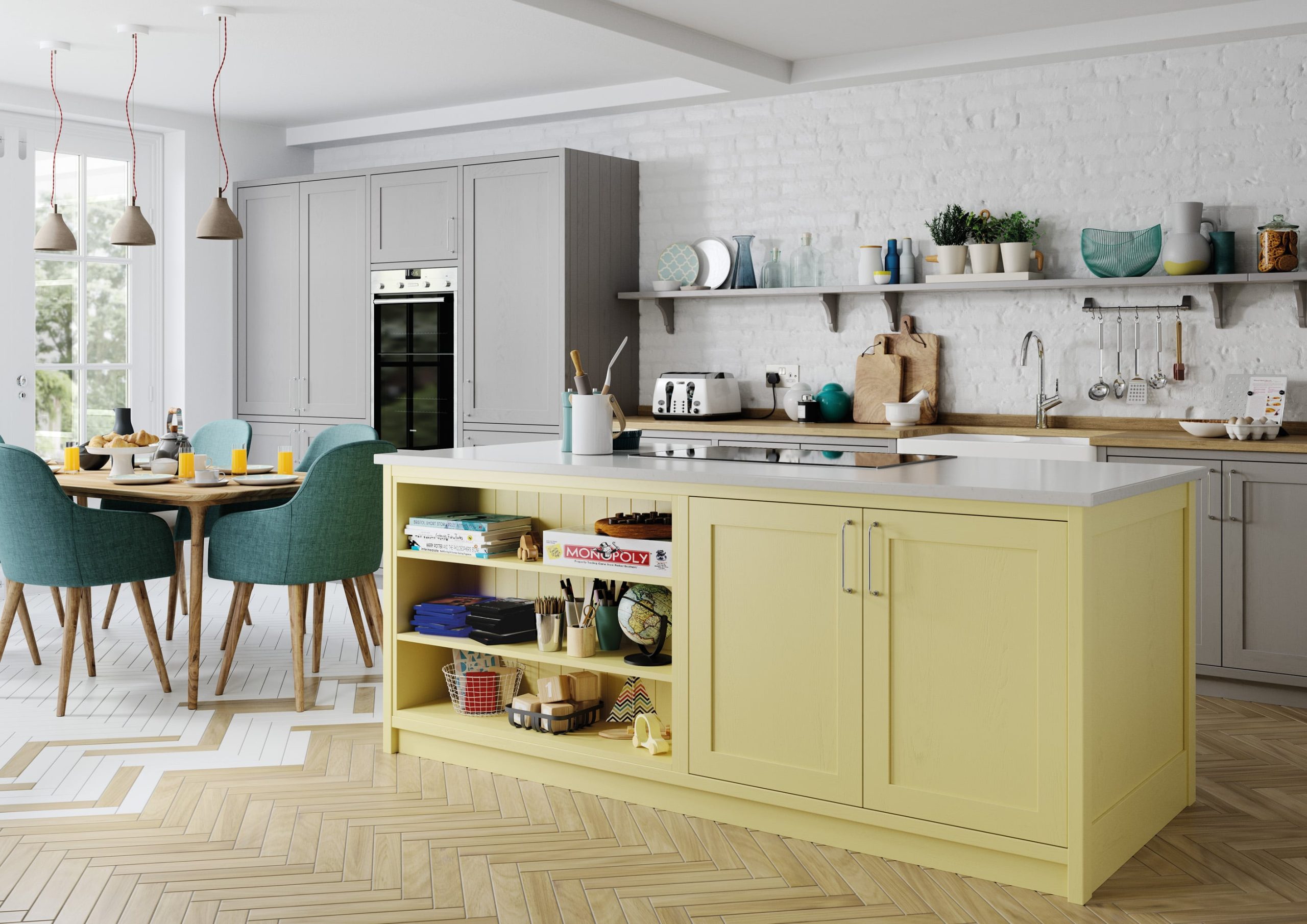
Kitchen islands undoubtedly have the potential to enhance a space both visually and practically. However, they aren’t necessarily the best solution for all projects. We’ve outlined some of the considerations that could impact your decision below.
The Cons
Interrupts Your Workflow
While kitchen islands can improve your layout, they also have the ability to detract from it. As a general rule of thumb, your kitchen walkways should be at least a meter wide, this ensures you can move freely even when opening drawers, dishwashers and cupboard doors etc. The work triangle is also considered an important aspect of your kitchen layout. This concept suggests your sink, cooktop, and fridge should be no more than 2.7m away from each other, with nothing intersecting each path. If your kitchen island inhibits any of the above factors, it could impair your layout, interrupting your workflow. Likewise, a kitchen island smaller than 1m2 is unlikely to offer enough worktop and storage space to prove useful, meaning it could end up simply getting in the way.
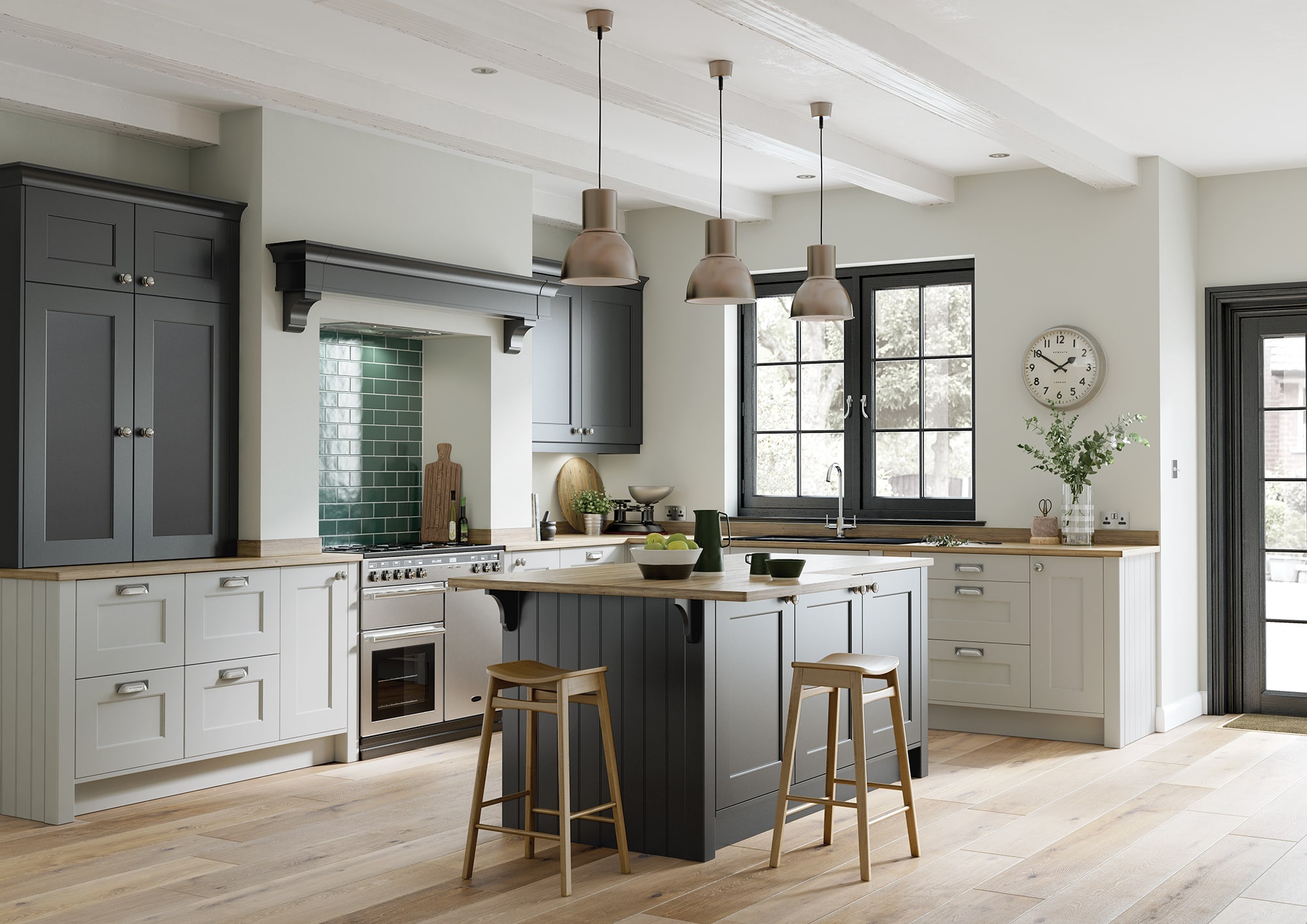
Disrupts The Look Of Your Space
Although a matter of personal taste as much as anything, some experts feel that a kitchen island can create an unnecessary visual distraction, blocking many of the beautiful details of your interior design. For example, if you have a beautiful range cooker or have invested in gorgeously detailed in-frame cabinets with intricate brass handles, positioning an island in the centre of your kitchen can hide some of these features from view. Also, some homeowners find kitchen islands tend to attract clutter, think unopened letters, phone chargers, spare change et al. Creating a drop off point en route from the front door to the kitchen can help prevent this.
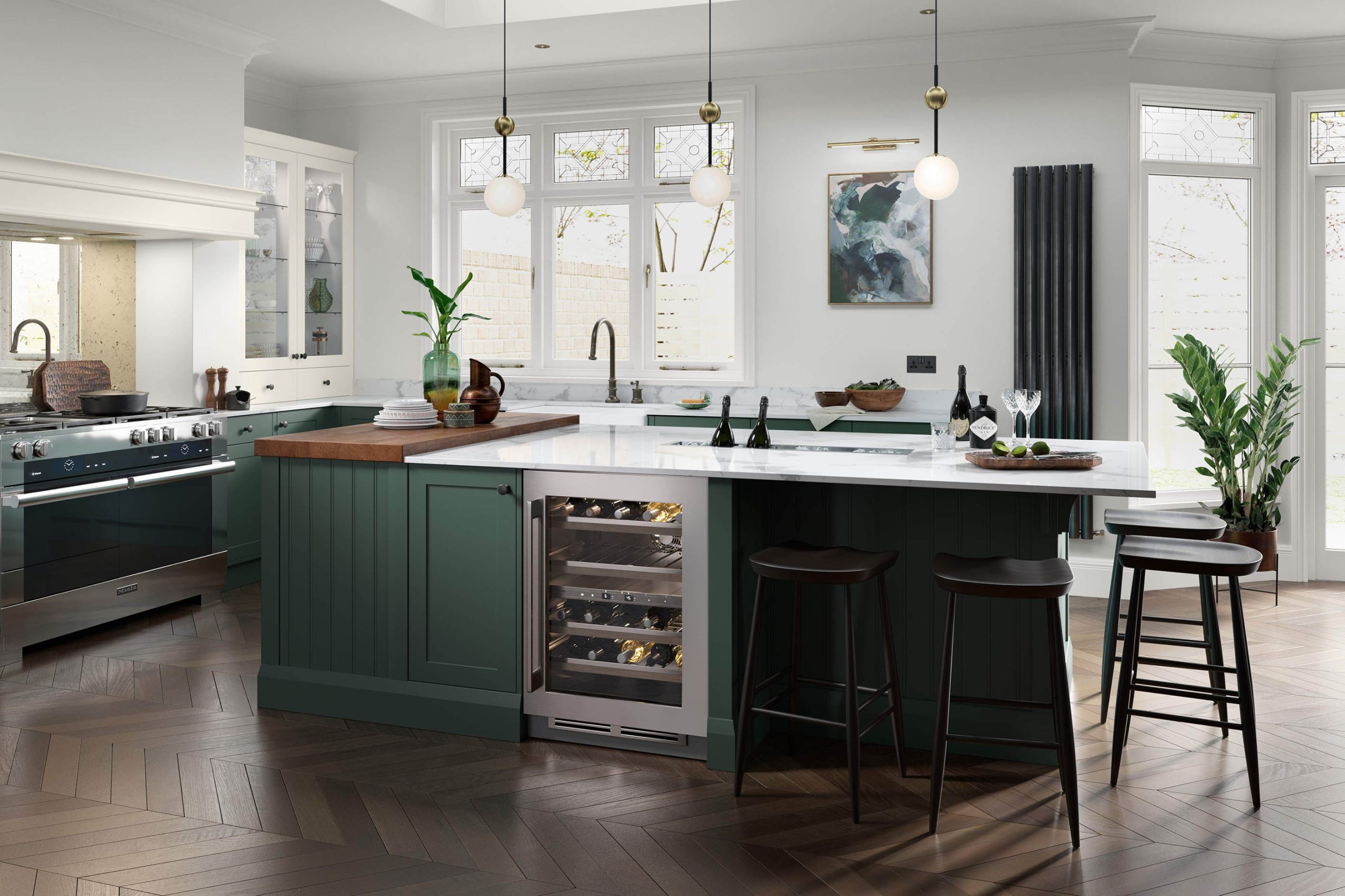
Can Be Expensive
If you don’t genuinely require the practical benefits offered by the kitchen island, they can be a somewhat unnecessary expense. Furthermore, installing appliances such as a hob, cooker hood and sink on an island can be significantly more costly than positioning them against an outside wall or near existing services.
Here at Ream Interiors, we’ve helped thousands of homeowners find their perfect dream kitchen, and many of our clients absolutely adore their kitchen islands, often exclaiming they simply couldn’t live without them. However, an island isn’t necessarily right for everyone. We would always recommend thinking carefully about your space, budget, and lifestyle before deciding whether a kitchen island is right for you. If you’d like to have a chat about whether you should include a kitchen island in your space, our friendly team would be more than happy to help. You can give us a call on 01634 799909 or email us an email at design@ream.co.uk.


